Iodine is an essential mineral that is vital for the proper functioning of the thyroid gland. This gland plays a crucial role in regulating metabolism, growth, and development. The suggested daily amount of iodine intake, also known as the recommended daily intake (RDI), is 150 micrograms per day for the majority of adults. Nevertheless, for women who are expecting or breastfeeding, the necessary amount is greater. While iodine deficiency is rare in many developed countries due to the widespread use of iodized salt, it still affects millions of people worldwide. The deficiency of iodine can lead to thyroid problems, such as goiter, hypothyroidism, and cretinism. Therefore, it is important to consume foods that are rich in iodine to maintain optimal thyroid function.
Here are the top 10 foods rich in iodine.
1. Seaweed
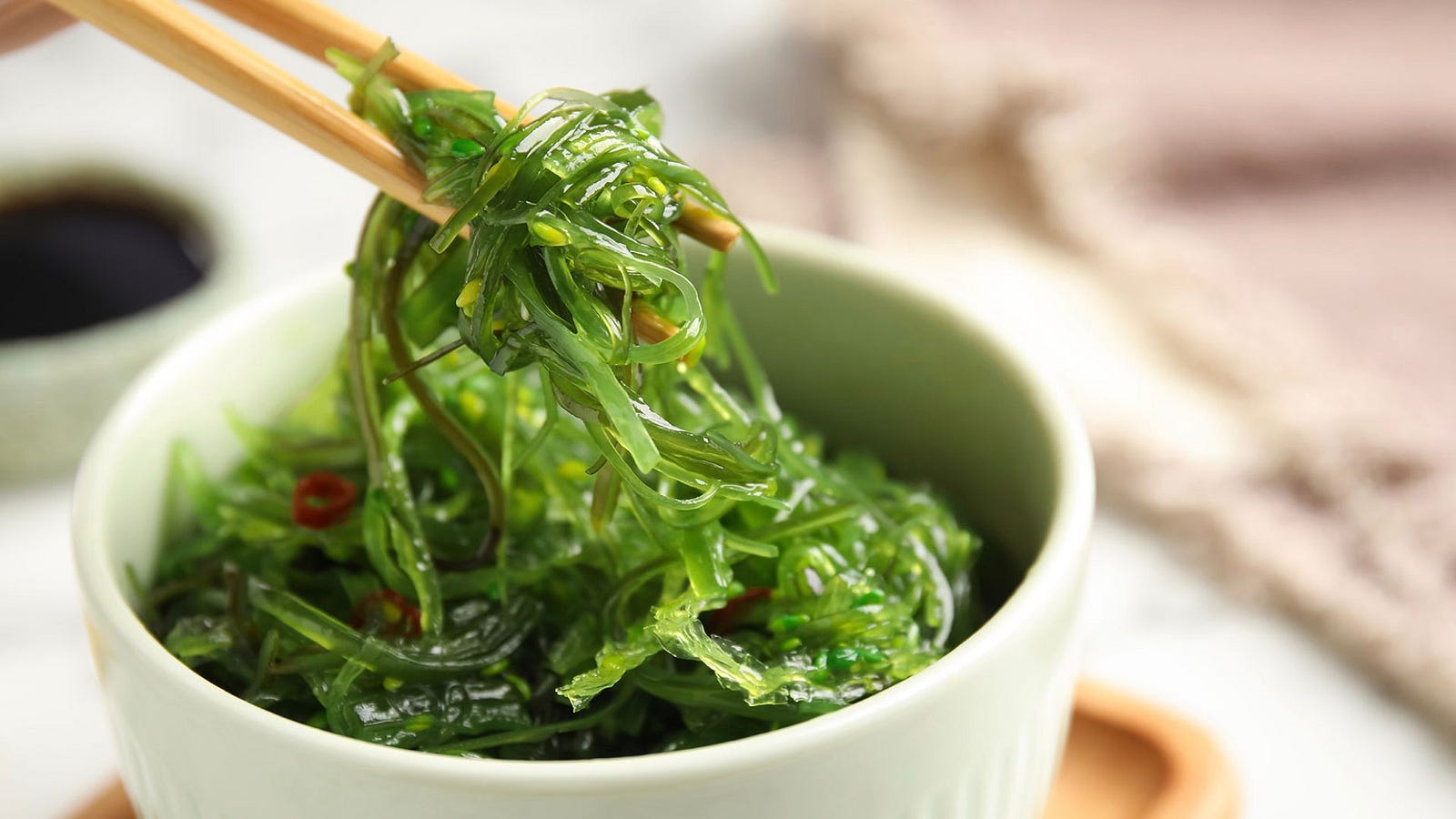 |
| Seaweed |
Seaweed is a type of marine algae that is incredibly rich in iodine. In fact, seaweed is one of the most concentrated natural sources of iodine available. It's important to note that not all types of seaweed contain high levels of iodine, so it's best to do some research before adding it to your meals. Some popular varieties include kelp, nori, wakame, and dulse. Seaweed can be enjoyed in salads, soups, sushi rolls, or even as a seasoning on top of roasted vegetables.
2. Shrimp
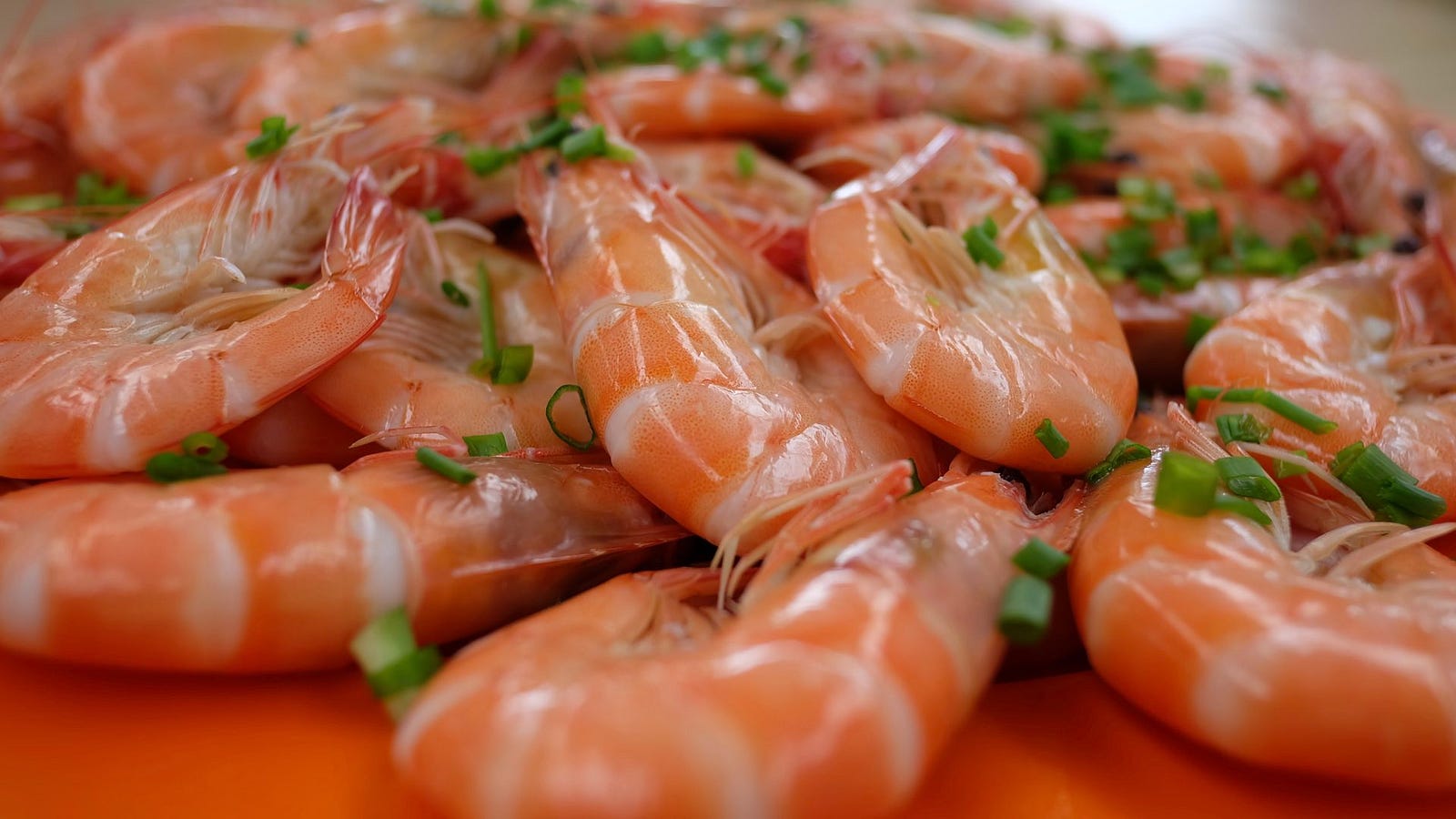 |
| Shrimp |
Shrimp is an excellent source of iodine, providing approximately 35 micrograms of iodine in a 3-ounce serving. For optimal iodine intake, it is recommended to choose fresh or frozen shrimp over canned varieties, as they typically contain higher levels of iodine. In addition to iodine, shrimp is also packed with other essential nutrients such as protein, omega-3 fatty acids, and vitamin B12.
3. Oysters
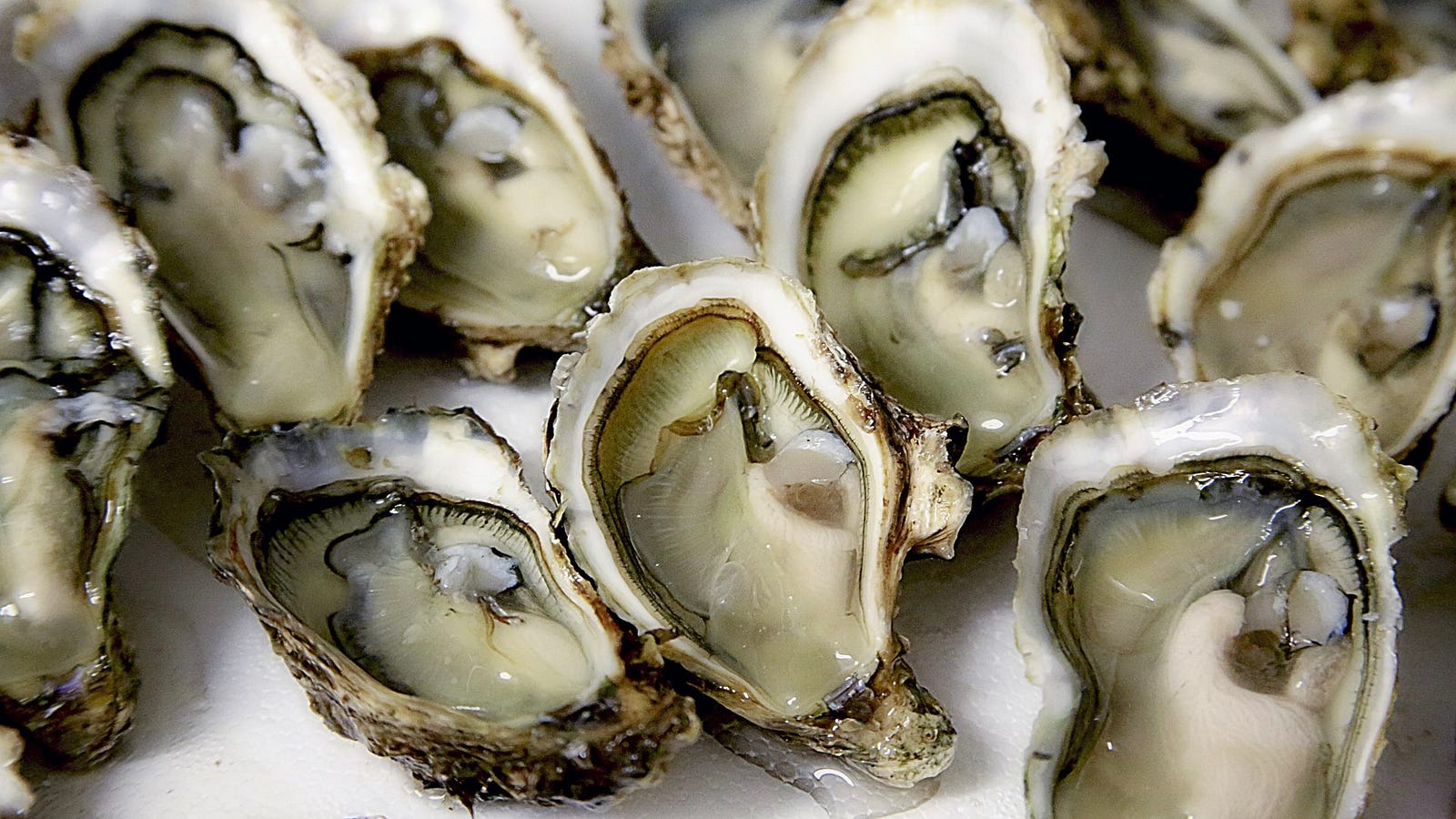 |
| Oysters |
Oysters, a type of shellfish, are a nutritional powerhouse. They are rich in essential nutrients, particularly iodine. Consuming only six medium-sized oysters can provide you with more than double the recommended daily intake of iodine. Oysters are also rich in protein and omega-3 fatty acids. Additionally, oysters are low in calories, making them a great food choice for those who are trying to lose weight or maintain a healthy diet.
4. Scallops
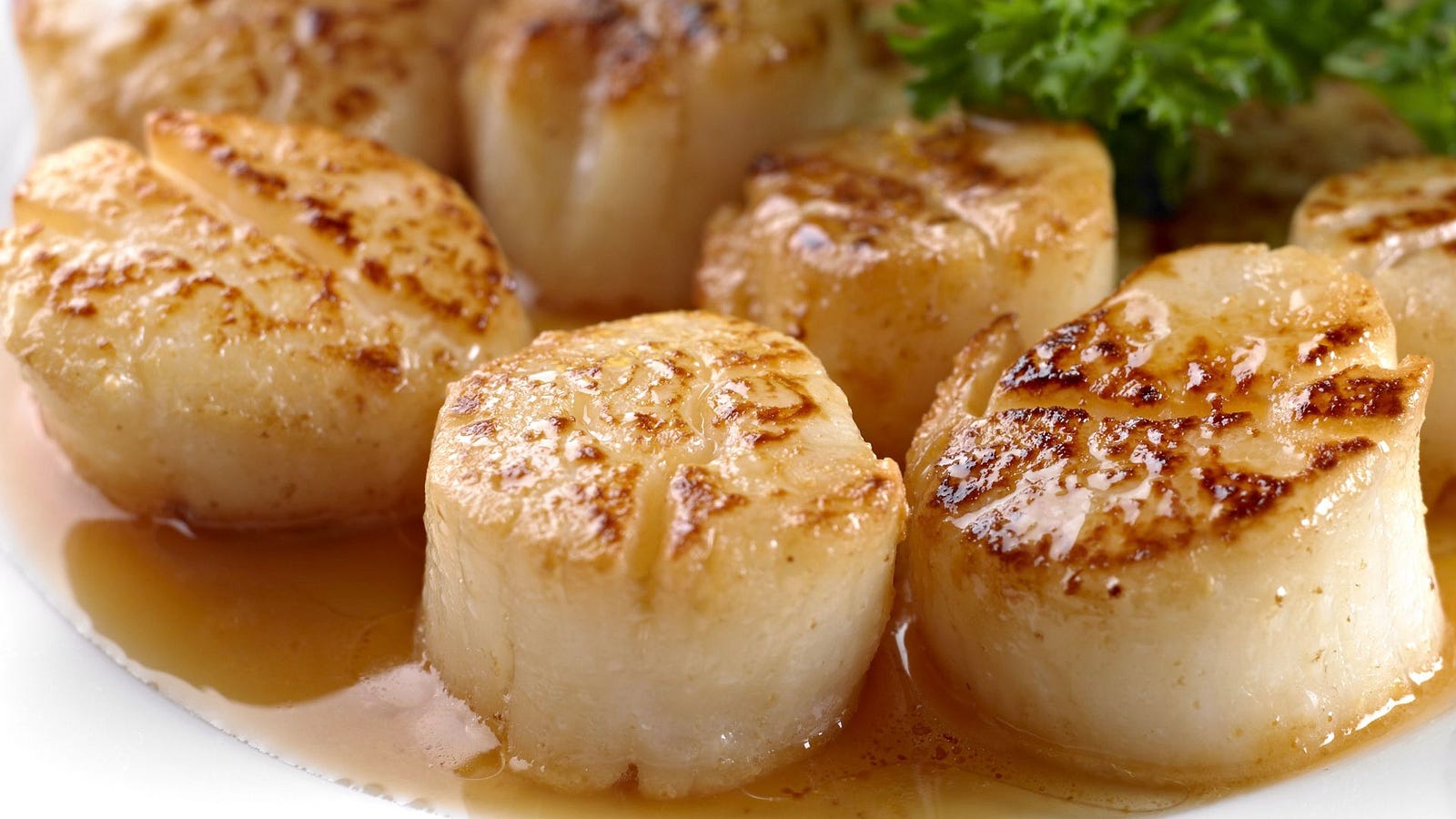 |
| Scallops |
Scallops are a type of shellfish that are known for their sweet and delicate flavor. They are also a great source of iodine. A 3-ounce serving of scallops contains approximately 35 micrograms of iodine, which is more than 20% of the recommended daily intake. Moreover, They're also a great source of protein and low in fat. You can enjoy them grilled, sautéed, or even raw in sushi.
5. Tuna
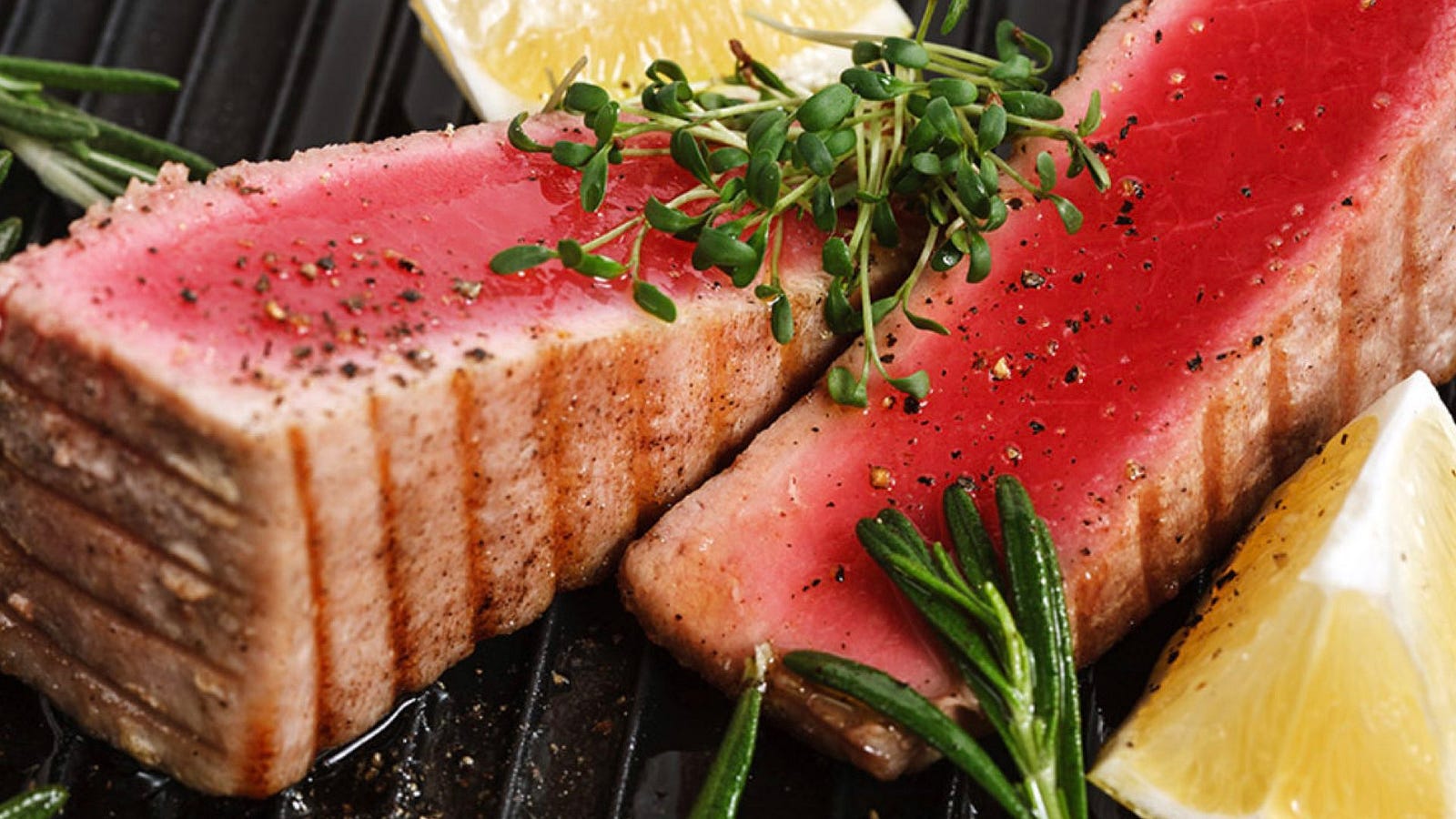 |
| Tuna |
Tuna is an exceptional source of iodine, providing a wealth of health benefits. A 3-ounce serving of canned tuna contains approximately 17 micrograms of iodine, which is about 11% of the recommended daily intake. Additionally, tuna is also a great source of protein, omega-3 fatty acids, and other nutrients that are important for overall health. You can enjoy tuna in a salad, sandwich, or even as sushi.
6. Cod
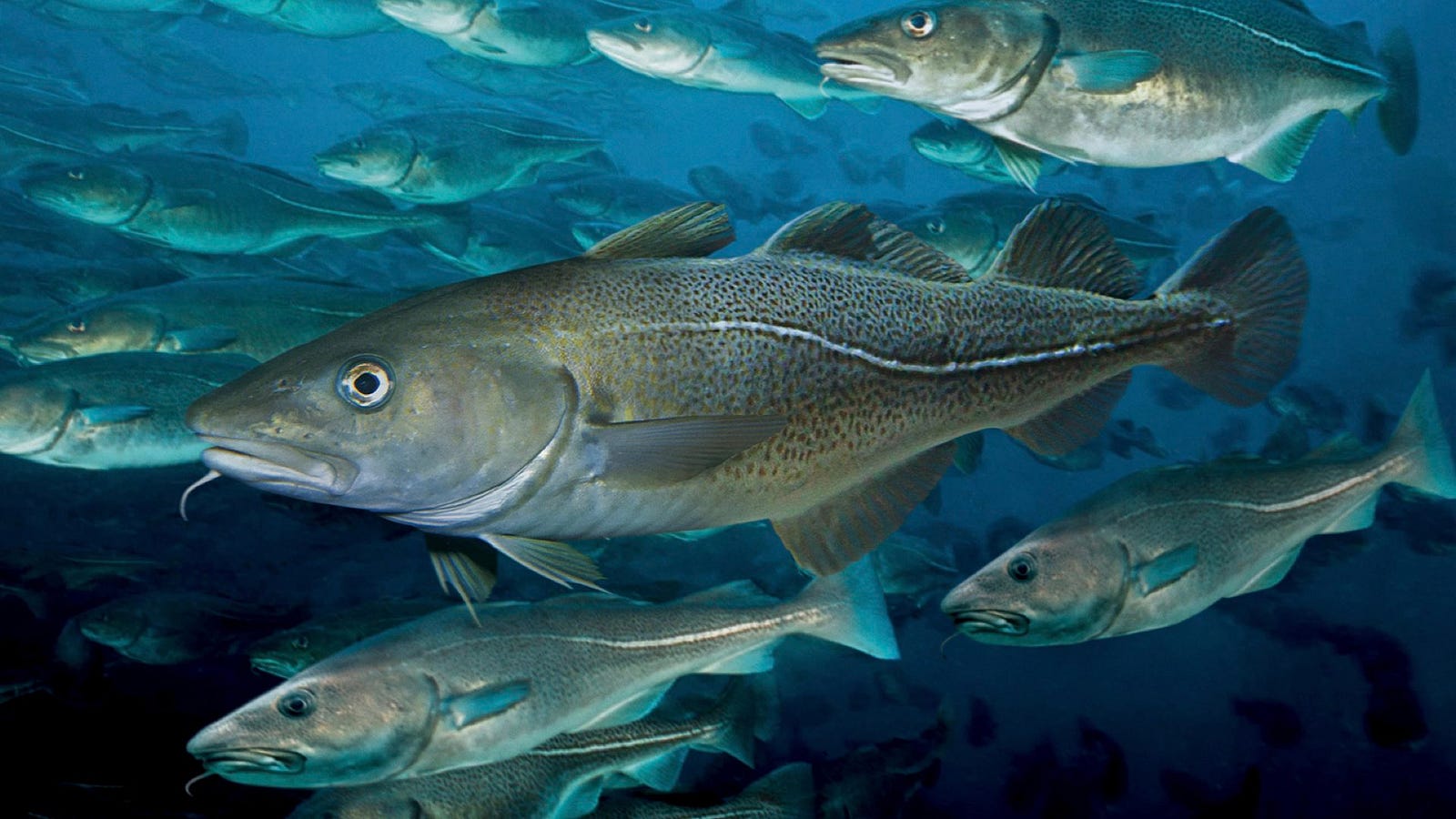 |
| Cod |
Cod is a popular white fish that is also rich in iodine. A 3-ounce serving of cod contains approximately 99 micrograms of iodine, which is more than 65% of the recommended daily intake. Moreover, it also provides other important nutrients such as omega-3 fatty acids, vitamin D, and selenium.
7. Squid
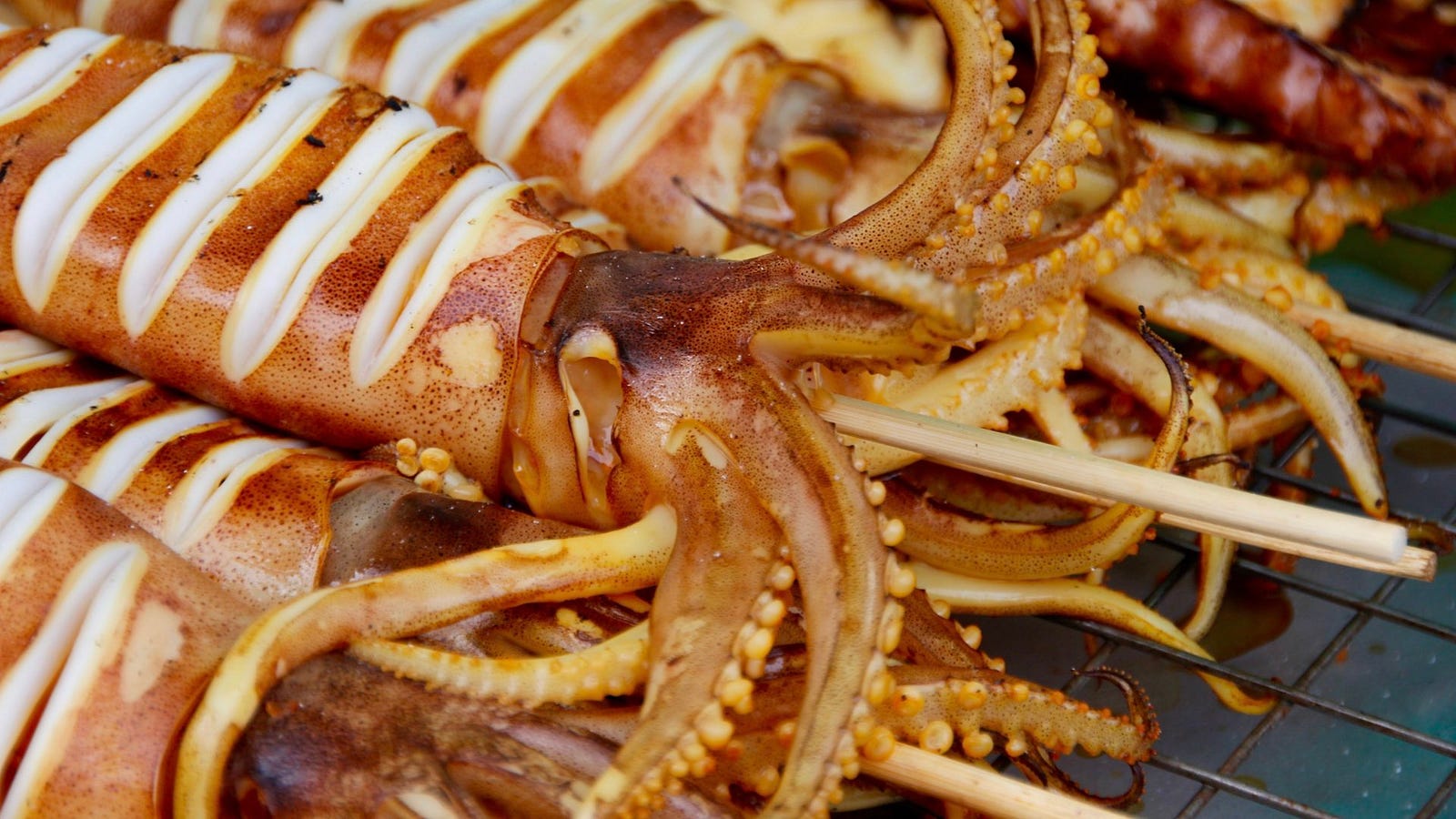 |
| Squid |
Squid is an excellent source of iodine. Just 3 ounces of cooked squid contain approximately 720 micrograms of iodine, which is more than four times the recommended daily intake. Squid is also rich in other nutrients like vitamins B12 and D, as well as omega-3 fatty acids. You can enjoy squid in various ways such as grilled, stir-fried, or even deep-fried as calamari rings.
8. Crab
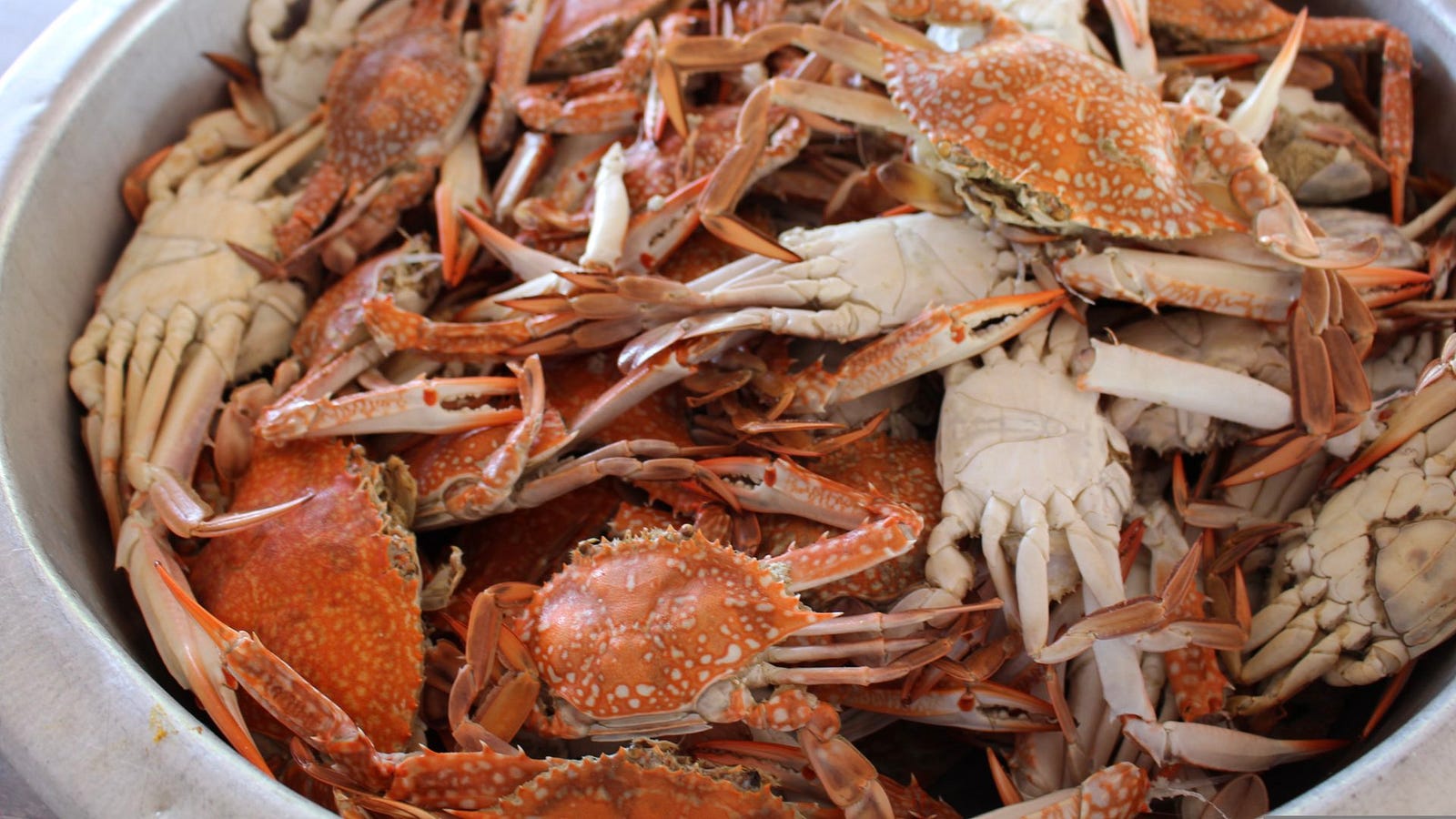 |
| Crab |
Crab is another seafood that is high in iodine. A 3-ounce serving of crab contains about 90 micrograms of iodine, which is nearly 60% of the recommended daily intake. Additionally, crab is a low-fat and high-protein food that provides several other important nutrients, like vitamin B12, selenium, and omega-3 fatty acids. Not only does it taste great on its own, but it can be added to a variety of dishes like salads or soups.
9. Eggs
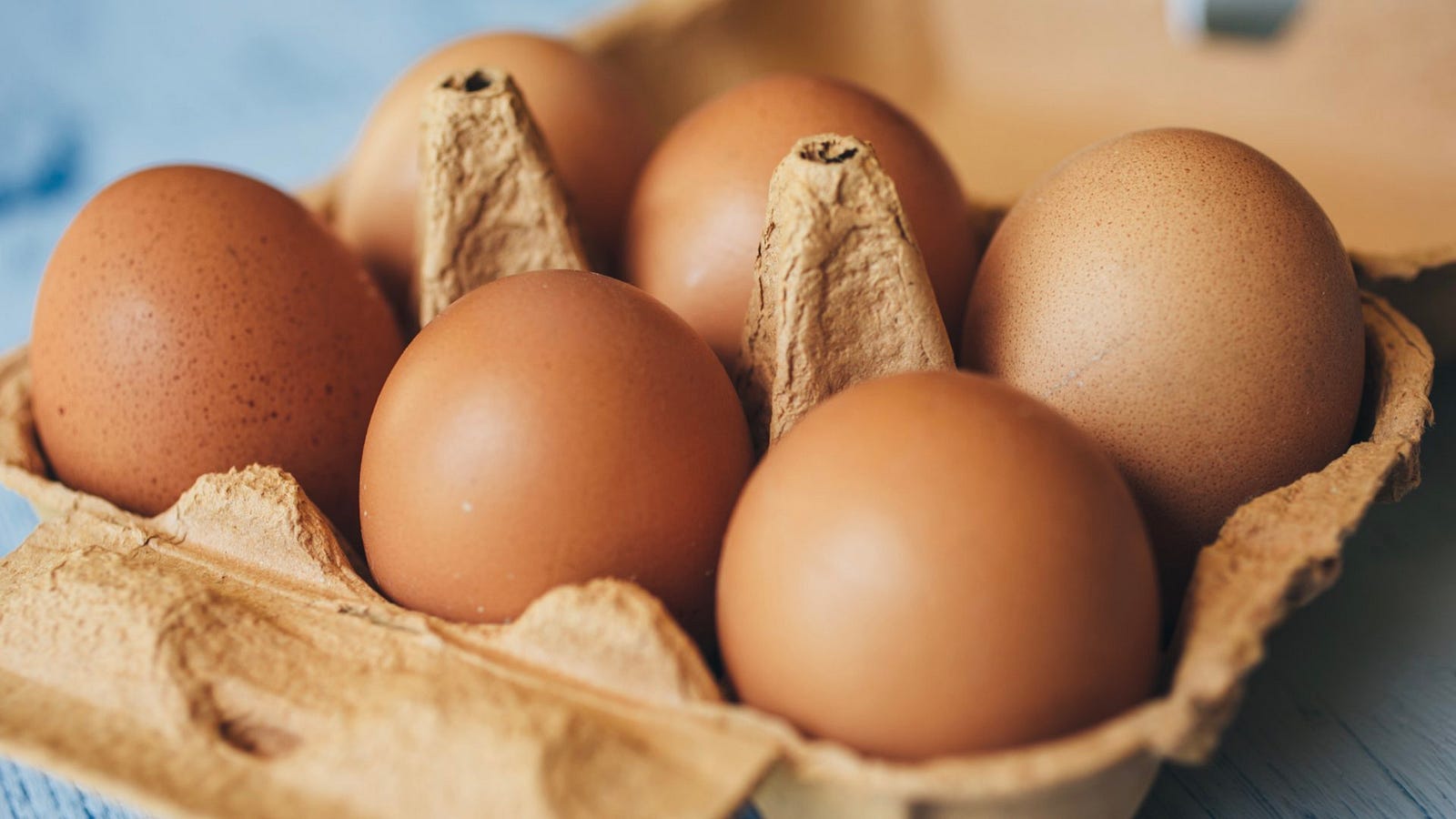 |
| Eggs |
Eggs are a great source of iodine, with one large egg containing approximately 24 micrograms of iodine, which is about 16% of the daily recommended intake, making them a great choice whether you're enjoying them as part of a breakfast spread or adding them to salads, sandwiches, or stir-fries.
10. Dairy
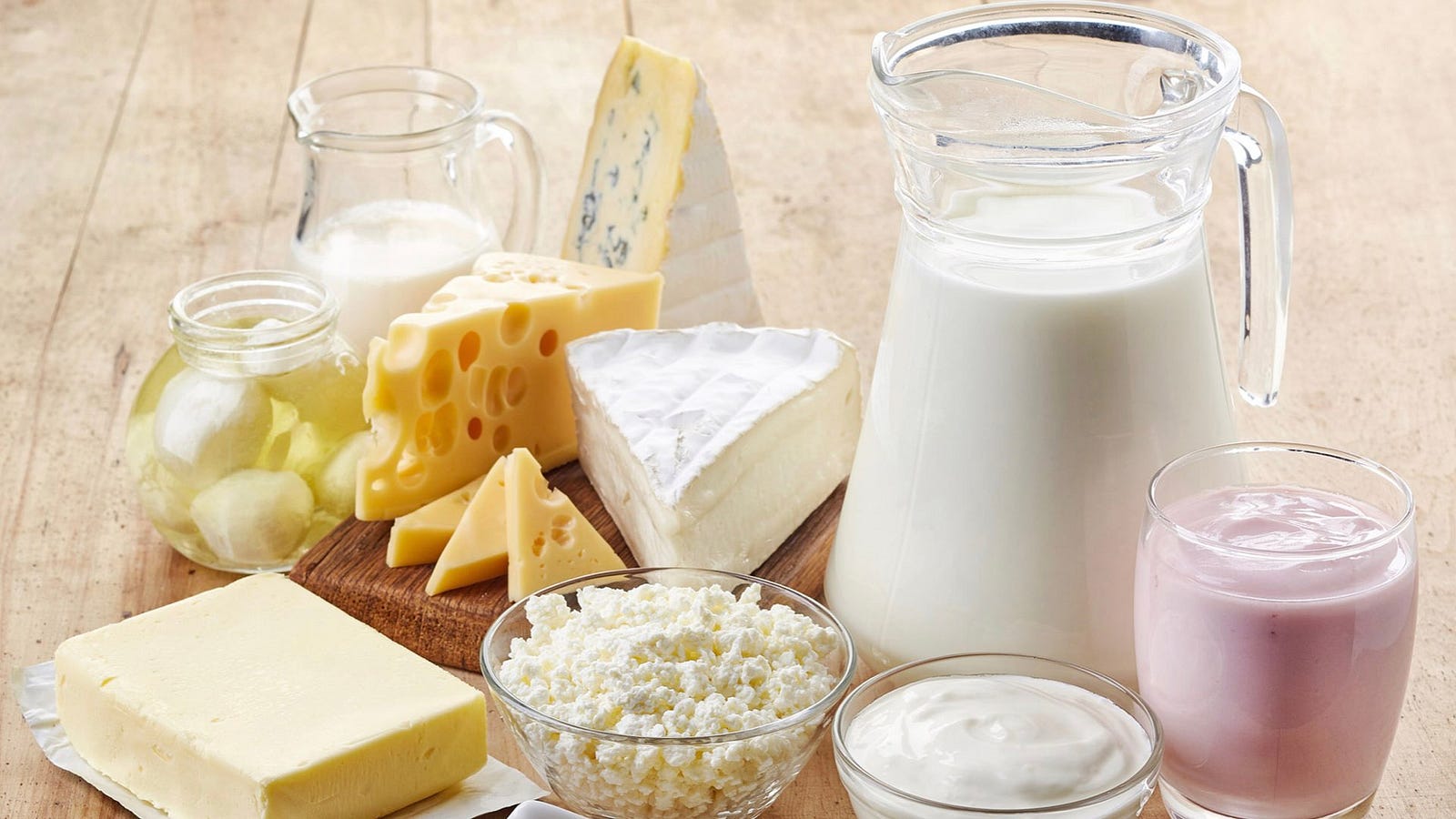 |
| Dairy |
Dairy products such as milk, cheese, and yogurt are excellent sources of iodine. This is because cows are typically fed iodine-rich feed, and their milk contains high levels of this nutrient. Just one cup of milk can provide up to 56 micrograms of iodine, making it one of the easiest ways to meet your daily needs. Other dairy products like cheese and yogurt also contain significant amounts of iodine. However, remember to choose low-fat options to avoid excess saturated fat consumption. In addition, cheese and yogurt are fermented, which can increase the bioavailability of iodine. Dairy products are not only a great source of iodine but also provide other important nutrients such as calcium, protein, and vitamin D. However, people who are lactose intolerant or have milk allergies should look for other sources of iodine.
#iodine #thyroid #thyroidfood #food #foods #diet #healthyfood #healthyfoods #superfood #superfoods #thyroidgland #squid #goiter #hypothyroidism #hypothyroid
Comments
Post a Comment